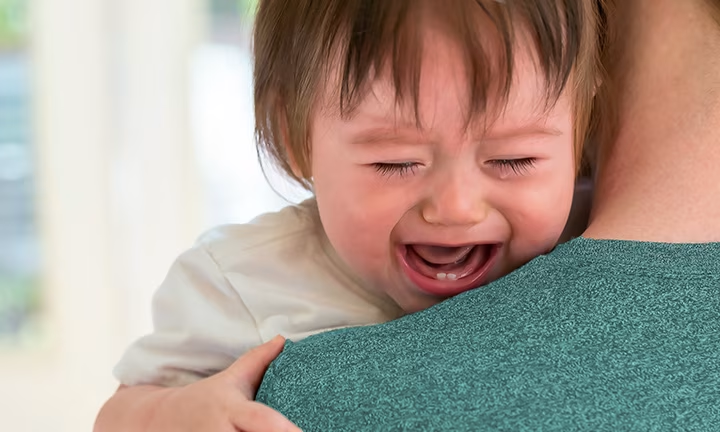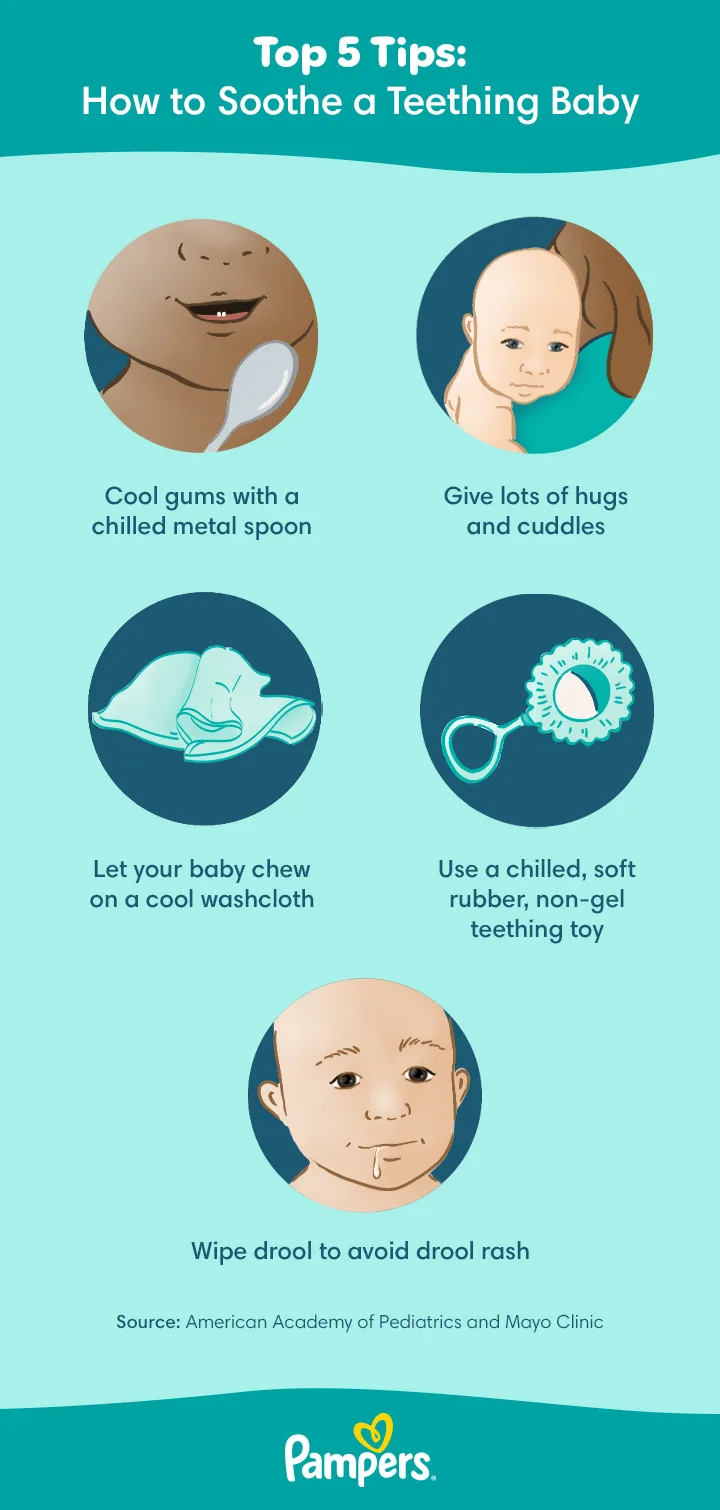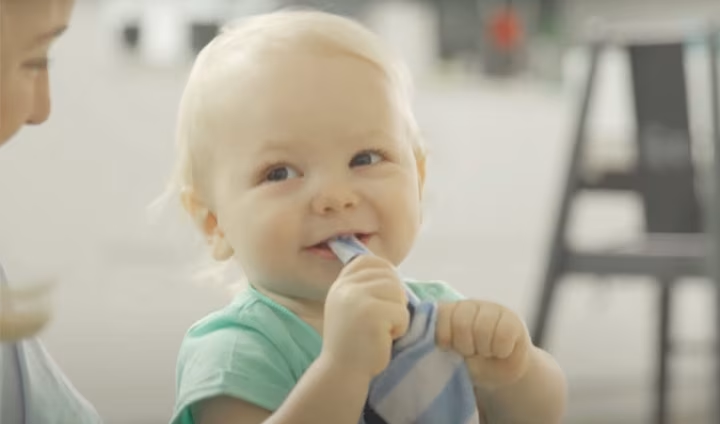
Tips for Soothing Your Teething Baby
Although some babies may experience very few or even no teething symptoms, many do – and it can be difficult to watch your teething baby suffer through this uncomfortable stage. Help your teething baby if they are feeling irritable or look to be in pain with our teething remedies and discover our extra tips on how to soothe your teething baby.
Home Remedies to Help Soothe Your Teething Baby
Try these teething remedies to help soothe your baby’s teething pain or discomfort:
How to Soothe Your Teething Baby at Night
Your baby might wake in the night due to teething pain. If this happens, do your best to comfort your little one without getting them too excited or awake. Here are some ways you might be able to do this:
Tip: Try giving your baby a bath before bed to help distract from the pain. A bath is calming for babies at any time, but particularly at night when getting ready for bed.
Teething Treatments: What to Avoid
Every baby is different when it comes to teething. Some grow teeth with no pain or discomfort at all, while others may find it more uncomfortable. It’s only natural to want to help your little one when they are in pain, but certain things should be avoided when it comes to teething pain:
Teething jewellery. There is no evidence to support that using amber jewellery can help reduce teething pains. More importantly, these types of jewellery are a choking and/or strangulation hazard and should not be used under any circumstances.
Foods and drinks containing lots of sugar. Avoid sugary foods and drinks as they may cause tooth decay, even if your child only has a few teeth.
Unlicensed homeopathic gels. There is no proof that homeopathic teething gels are effective. If you do use one, make sure it’s licensed for use in the UK. Some unlicensed homeopathic gels advertised online have been linked to serious side effects.
When to See the Doctor
All sorts of things are often put down to teething – rashes, crying, bad temper, runny noses, extra dirty nappies. Be careful not to explain away potential signs of illness by assuming it’s ‘just teething’. At the end of the day, you know your baby best.
Symptoms like diarrhoea and fever are sometimes attributed to teething, but this hasn’t been scientifically proven, and other complaints may also cause the same symptoms. If your baby is showing these or any other symptoms that you’re concerned about, it’s best to let your doctor know or call 111 just to be on the safe side.
Looking After Your Baby’s Teeth
From the moment your baby’s first tooth appears, you should brush your baby’s teeth. It is important to have a brushing routine as more teeth start coming through. This will help to make sure the teeth are brushed properly every time. Don’t worry if you don’t manage to brush much at first, the most important thing is getting your baby used to brushing their teeth as part of their daily routine.
Brushing Teeth
Here are some top tips for brushing your little one’s teeth:
There are a number of ways to position your baby when brushing teeth. You might like to try sitting your little one on a changing mat on the floor, on your lap, or in a baby chair. Always supervise toothbrushing and never leave a baby or small child alone with either a toothbrush or toothpaste.
Tip: Not every child enjoys having their teeth brushed. You might like to try turning the experience into a fun game, or brushing your own teeth at the same time and then helping your child finish theirs.
Going to the Dentist
Once your baby starts growing teeth, it’s important that they have regular check-ups at the dentist. NHS dental treatment is free for children, but not all dentists will take on new NHS patients. To get your child used to going to the dentist, it can also be a good idea to take them with you to your own dental appointments.
Call your local clinic or NHS England on 0300 311 22 3, or send an email to england.contactus@nhs.net to find a dentist.
Sugar and Tooth Decay
Sugar is the leading cause of tooth decay. You can help protect your child’s teeth by selecting foods and drinks that don’t contain any added sugars. Lollipops and sweet drinks in a formula bottle are particularly harmful as they bathe teeth in sugar for extended periods of time. Acid found in drinks like fruit juice and squash can also damage your child’s teeth in the long run.
While they may be sugary, the sugars found in whole fruits are less likely to cause tooth decay than those found in fizzy drinks and sweets. Overall, the safest drinks to give your little one to protect his or her teeth are milk and water.
If you’re looking to cut down the amount of sugar in your child’s diet to prevent tooth decay, you may find the following tips useful:
FAQs at a Glance
It can be hard to watch your little one suffer, luckily there are a number of things you can do to help: massaging their gums; a chilled teething ring; a sip of cool water; a cold, wet flannel; plenty of cuddles.
The Bottom Line
Teething can sometimes be a challenging phase for your baby and you, but it doesn’t last forever! Look at our teething timeline to find out when your baby might start teething, how long the teething stage could last, and which teeth are likely to appear when.
Every child is different, and so is every tooth! Some of the teething pain relief tips and remedies above may work better than others for your little one. You might also find that different soothing methods are more effective at different times. Hang in there!
Read more about Baby
Join Pampers Club and get:









